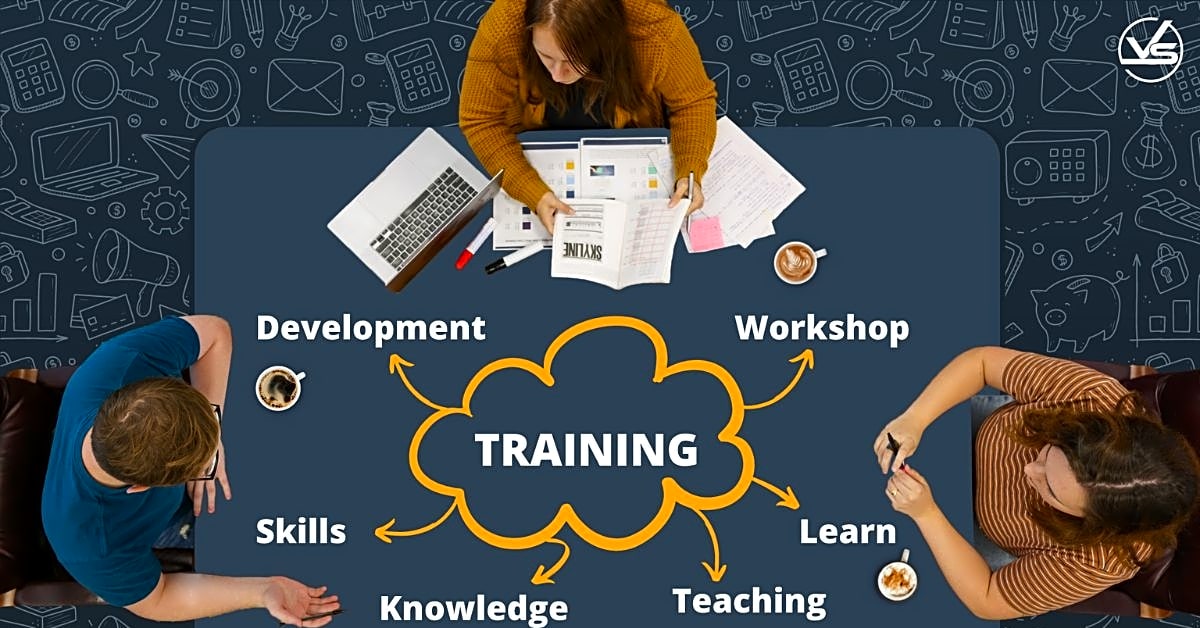In today’s highly competitive and fast-paced business world, building trust and camaraderie within a team is crucial for success. Without a strong sense of trust and camaraderie, team members may struggle to work together effectively, resulting in decreased productivity and morale. This is why team building and collaboration have become essential components for any successful organization. In this article, we will delve into the importance of building trust and camaraderie in a team, and provide you with a comprehensive guide on how to foster teamwork and collaboration. Whether you are a team leader or a team member, this article will equip you with the necessary tools to create a cohesive and high-performing team. So, let’s explore the world of team building and collaboration together.
In today’s fast-paced business world, building trust and camaraderie within a team is more important than ever. Trust is the foundation of any successful team, as it allows team members to rely on each other and work towards a common goal. Without trust, a team can quickly fall apart and struggle to achieve its objectives. Similarly, camaraderie, which refers to the bond and sense of community within a team, is crucial for creating a positive and productive work environment.
So why exactly are trust and camaraderie so important? Firstly, trust allows team members to feel comfortable sharing their ideas, concerns, and feedback openly. This promotes transparency and understanding within the team, which ultimately leads to better decision-making and problem-solving. When team members trust each other, they are also more likely to collaborate effectively and support one another’s ideas.
Camaraderie, on the other hand, creates a sense of belonging and unity within a team. When team members feel connected and valued by their colleagues, they are more motivated to work together towards a common goal. This can greatly increase productivity and overall job satisfaction.
Now that we understand the importance of trust and camaraderie in a team setting, let’s explore some strategies for fostering these qualities within your own team:
- Encourage open communication and active listening: One of the key ways to build trust within a team is by promoting open communication. This means creating an environment where team members feel comfortable speaking up and sharing their thoughts and concerns. Active listening is also crucial – this involves actively paying attention to what others are saying and responding with empathy and understanding. By encouraging open communication and active listening, you can create a culture of trust within your team.
- Foster a positive work culture: A positive work culture is essential for promoting camaraderie within a team. This can be achieved by recognizing and valuing each team member’s contributions. Make sure to acknowledge and celebrate individual achievements, and create a sense of unity by involving the entire team in decision-making processes. When team members feel valued and appreciated, they are more likely to trust and support one another.
- Set clear expectations: Misunderstandings and confusion can quickly erode trust within a team. To avoid this, it’s important to set clear expectations for each team member’s roles and responsibilities. This means clearly defining tasks, deadlines, and any other important details. When everyone knows what is expected of them, it promotes a sense of accountability and trust within the team.
- Organize team-building activities: Team-building activities are a great way to promote bonding and teamwork within a team. This can include fun games, group outings, or even virtual team-building exercises during remote work. These activities not only help team members get to know each other better, but they also promote a sense of camaraderie and unity.
By implementing these strategies, you can foster a strong sense of trust and camaraderie within your team. Not only will this benefit your business management skills, but it will also create a more positive and productive work environment for everyone involved. Remember, building trust and camaraderie takes time and effort, but the results are well worth it in the long run.
Productivity
Maximizing productivity is key to running a successful business. Here are some techniques to help you boost your productivity:
Project Management
Having strong project management skills is essential for keeping your team organized and on track. Whether you are working on a small project or a large-scale endeavor, it is important to have effective processes in place to ensure that everything runs smoothly. Here are some practices to consider implementing:
- Establish clear goals and objectives: Before starting any project, it is crucial to have a clear understanding of what needs to be accomplished. This will help keep your team focused and motivated.
- Communicate regularly: Regular communication is key in project management. Make sure everyone on the team is aware of their tasks and deadlines, and be available to answer any questions or concerns.
- Delegate tasks: As a leader, it is important to delegate tasks to team members based on their strengths and abilities. This will not only help lighten your workload, but also ensure that each task is completed efficiently.
- Monitor progress: Keep track of the progress being made on the project and make adjustments as needed. This will help prevent any delays or issues from arising later on.
- Celebrate successes: When a project is completed successfully, make sure to recognize and celebrate the hard work and contributions of your team. This will boost morale and motivate them for future projects.
Organization
Staying organized is essential for managing a successful business. Here are some tips for staying organized and managing your time effectively:
1. Create a schedule and stick to it – having a set routine will help you stay on track and make the most out of your time. Make sure to include breaks and time for team building activities to foster trust and camaraderie within your team.
2. Utilize technology – there are many tools and apps available that can help you stay organized, manage your tasks, and communicate with your team. Take advantage of these resources to streamline your workflow.
3. Delegate tasks – as a leader, it’s important to delegate tasks to your team members and trust in their abilities. This will not only free up some of your time, but also allow your team to feel more involved and valued.
4. Keep a clean workspace – a cluttered workspace can lead to a cluttered mind. Make sure to keep your workspace organized and tidy to help you stay focused and productive.
5. Prioritize tasks – it’s important to prioritize your tasks based on their urgency and importance. This will help you manage your time more effectively and ensure that the most important tasks are completed first.
Problem Solving
Problems are inevitable in any business, but how you handle them can make a big difference. As a leader, it is important to be able to effectively solve problems and make decisions that benefit the team as a whole. Here are some key strategies for becoming a better problem solver:
- Communicate openly and transparently: When faced with a problem, it’s important to communicate openly and honestly with your team. This not only helps to build trust, but also allows for more effective brainstorming and problem-solving.
- Encourage collaboration: Encouraging collaboration among team members can lead to new perspectives and ideas for solving problems. By working together, everyone can contribute their unique skills and insights to find the best solution.
- Identify the root cause: Often, problems are just symptoms of a larger issue. It’s important to dig deep and identify the root cause of a problem in order to come up with an effective solution.
- Stay calm and collected: It’s natural to feel stressed or overwhelmed when faced with a problem, but as a leader, it’s important to remain calm and collected. This will help you think clearly and make rational decisions.
By using these strategies, you can become a more effective problem solver and lead your team towards success. Remember, problems are inevitable, but it’s how you handle them that truly matters.
Decision Making
As a leader, you will often be faced with tough decisions. Here are some tips for making effective decisions:
1. Gather all the necessary information: Before making a decision, it’s important to gather all the relevant information. This includes researching the problem, understanding the potential consequences, and considering different perspectives. Having a clear understanding of the situation will help you make an informed decision.
2. Analyze the pros and cons: Once you have all the information, it’s important to weigh the pros and cons of each possible decision. Consider the potential risks and benefits of each option and how they align with your team’s goals and values.
3. Consider the impact on your team: Your decision will not only affect you but also your team. Take into account how your decision will impact their workload, morale, and overall dynamic. This will help you make a decision that is best for both your team and the business.
4. Trust your instincts: While it’s important to gather information and analyze it, don’t forget to trust your instincts as well. As a leader, you have experience and intuition that can guide you in making difficult decisions. Don’t ignore your gut feeling.
5. Communicate clearly: Once you have made a decision, it’s important to communicate it clearly to your team. Explain the reasoning behind your decision and address any concerns they may have. This will help build trust and camaraderie within your team.
Leadership Strategies
Effective leadership is crucial for building trust and camaraderie within a team. As a leader, it is your responsibility to create a positive and collaborative work environment where team members feel supported and valued.
Here are some tips to help you become a better leader:
- Lead by Example: One of the most important traits of a good leader is leading by example. Show your team members what it means to be a hardworking, dedicated and respectful individual. Your actions speak louder than words, so make sure to set a good example for your team.
- Communicate Effectively: Clear and effective communication is key to building trust and camaraderie within a team. Make sure to communicate openly and frequently with your team members, listen to their ideas and concerns, and provide constructive feedback.
- Encourage Collaboration: Encouraging collaboration among team members fosters a sense of camaraderie and trust. As a leader, you should create opportunities for your team to work together, share ideas, and learn from each other.
- Show Appreciation: Recognizing and appreciating your team’s hard work and contributions can go a long way in building trust and camaraderie. Make sure to acknowledge their efforts and celebrate their successes.
- Be Flexible: Effective leaders understand that not everyone works the same way. Be open to different working styles and be flexible in your approach. This can help create a more inclusive and positive work environment.
Communication Skills
Clear and effective communication is crucial for building trust and camaraderie within a team. Here are some ways to improve your communication skills:
– Listen actively: Pay attention to what your team members are saying and make an effort to understand their perspectives.
– Be open and honest: Encourage open communication and be transparent with your team. This will help build trust and foster camaraderie.
– Provide feedback: Giving and receiving feedback is essential for improving communication and strengthening relationships within a team.
– Use positive language: Avoid negative language and focus on using positive and constructive language when communicating with your team.
– Be aware of nonverbal cues: Nonverbal cues, such as body language and tone of voice, can greatly impact communication. Pay attention to these cues and make adjustments as needed.
– Practice active listening: Show your team that you are listening by asking clarifying questions and summarizing what they have said.
– Communicate regularly: Keep an open line of communication with your team through regular check-ins, team meetings, and one-on-one conversations.
By incorporating these strategies into your communication, you can improve trust and camaraderie within your team, leading to a more productive and harmonious work environment.
Time Management
In today’s fast-paced business world, time management is crucial for success. As a leader, it is your responsibility to ensure that your team is using their time effectively and meeting deadlines. Here are some time management techniques you can implement to improve productivity and efficiency within your team.
1. Set clear goals and priorities: One of the most important aspects of time management is setting clear goals and priorities. This allows your team to focus on what is most important and avoid wasting time on tasks that are not essential. Make sure to communicate these goals and priorities clearly to your team, so they know what tasks should be prioritized.
2. Plan and prioritize tasks: Encourage your team to plan their day or week in advance and prioritize their tasks according to importance. This will help them stay organized and ensure that they are working on the most critical tasks first.
3. Avoid multitasking: While multitasking may seem like a way to get more done in less time, it often leads to decreased productivity and lower quality work. Encourage your team to focus on one task at a time to ensure that it is completed efficiently and effectively.
4. Delegate tasks: As a leader, it is essential to delegate tasks to your team members. This not only helps lighten your workload but also allows your team members to develop new skills and take ownership of their work.
5. Take breaks: It may seem counterintuitive, but taking breaks can actually improve productivity. Encourage your team to take short breaks throughout the day to recharge and refocus.
6. Use technology and tools: There are many time management tools and technologies available that can help you and your team stay organized and on track. Explore different options and find what works best for your team.
By implementing these time management strategies, you can maximize productivity within your team and ensure that deadlines are met. Remember, effective time management is key to running a successful business and being a strong leader.
By implementing these strategies and techniques, you can build trust and camaraderie within your team, which will greatly benefit your business management skills. Remember, fostering a positive work culture and promoting open communication are key to creating a strong and successful team. Good luck!






